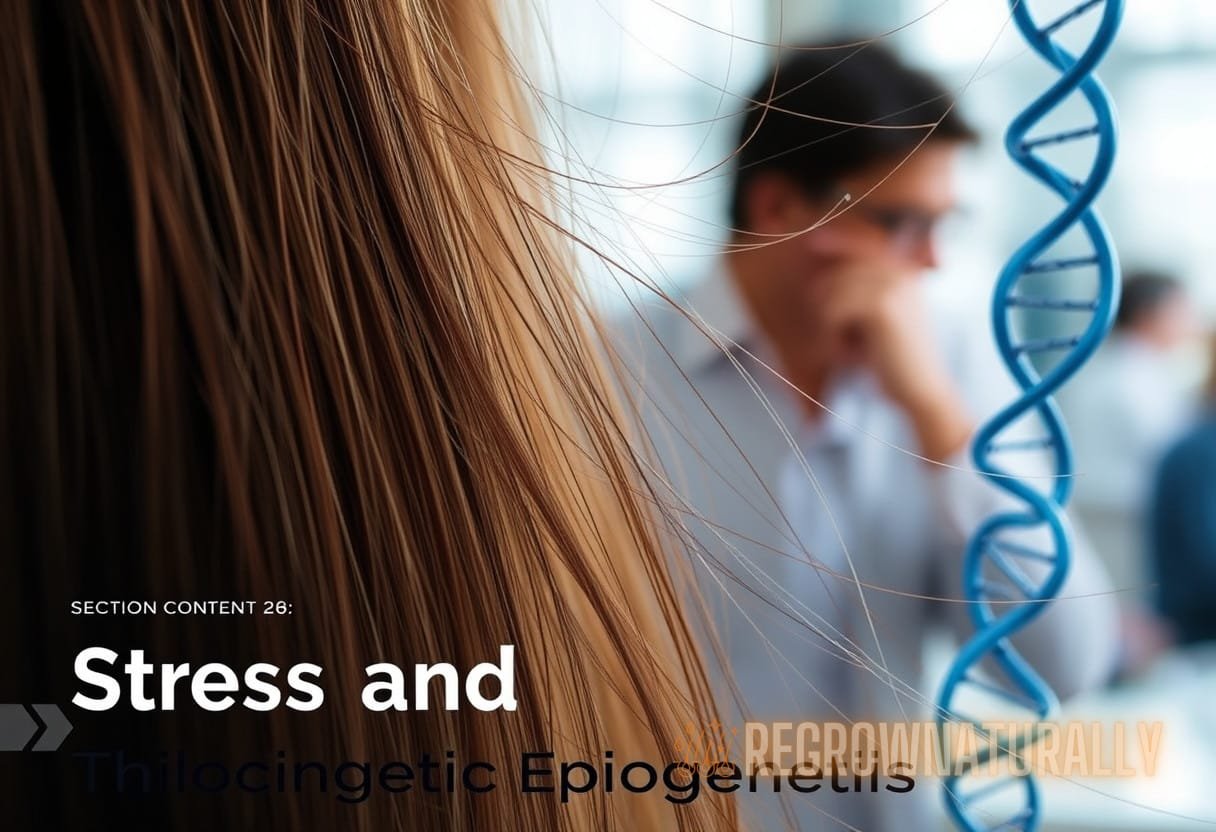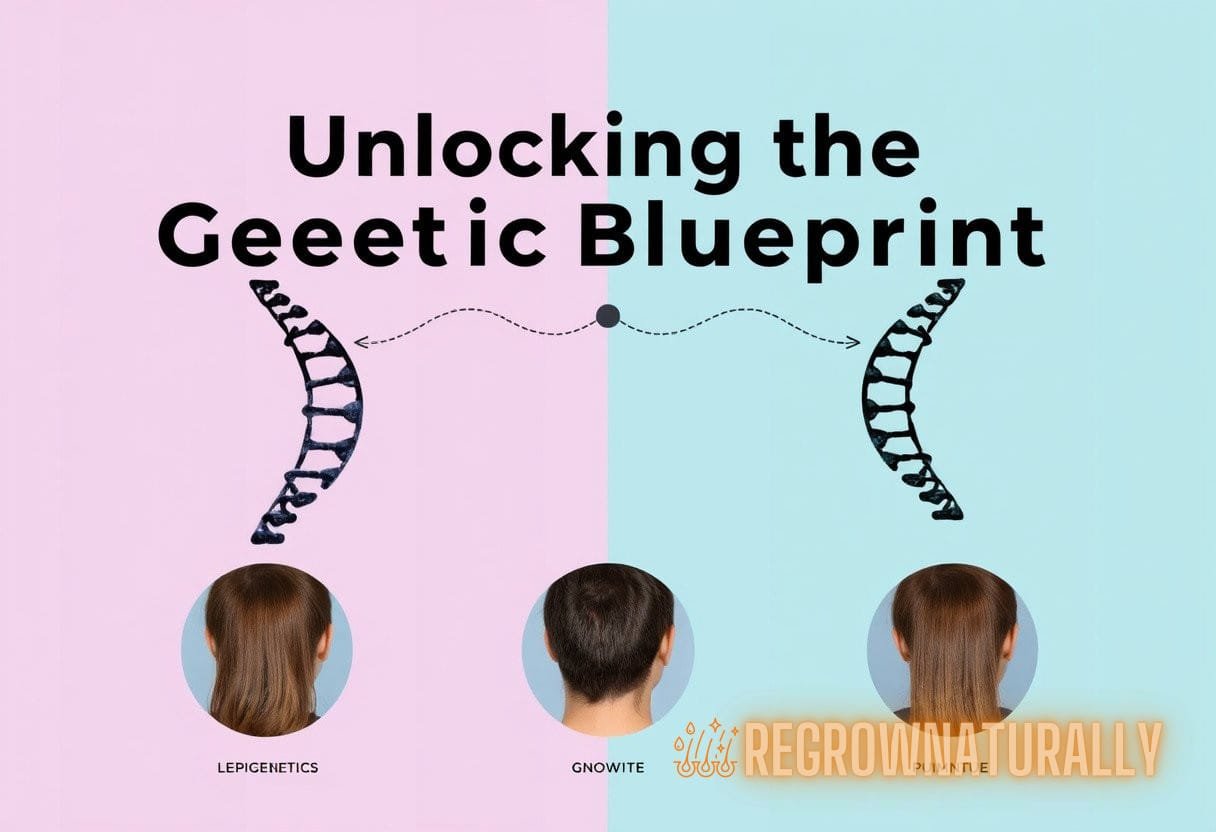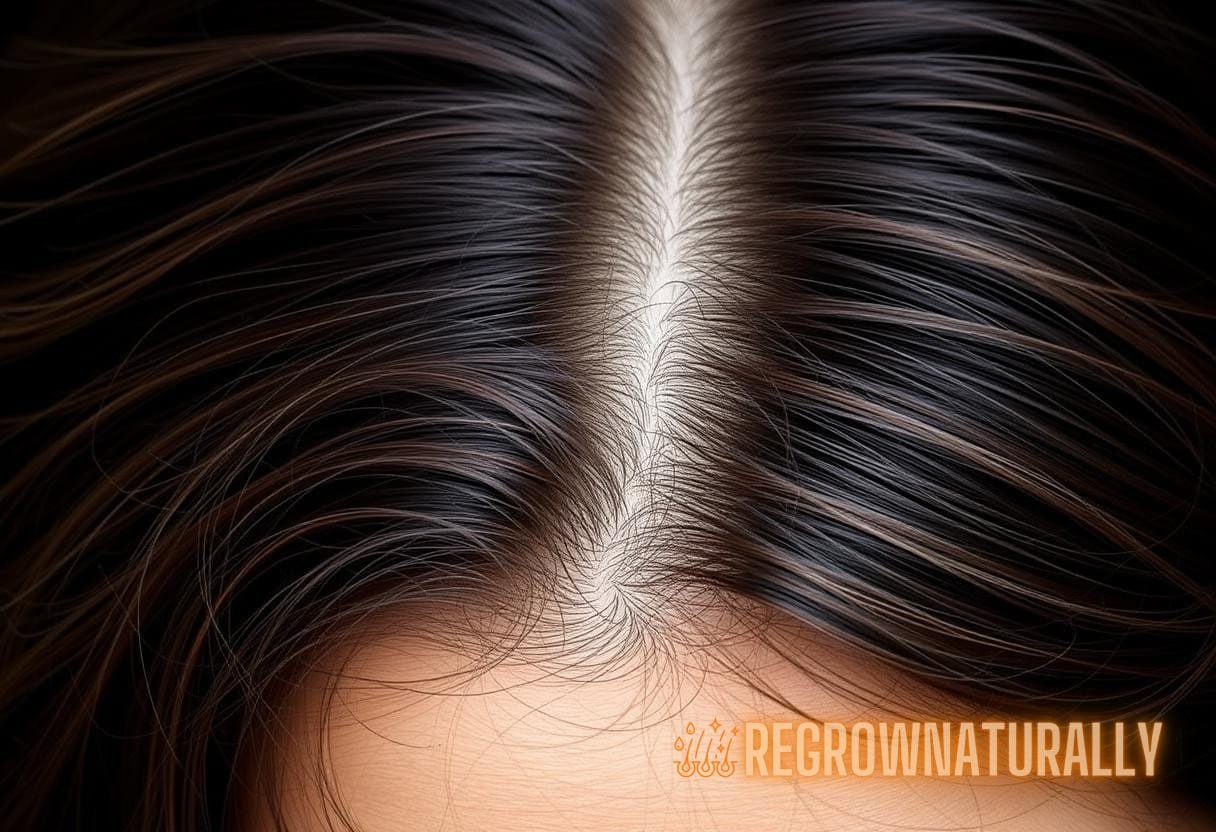Unlocking the Genetic Blueprint: How Epigenetics Influences Hair Growth and Transformation
In recent years, epigenetic hair insights have emerged as a groundbreaking area of research, providing clarity into how our genes influence hair growth and transformation processes. Epigenetics, the study of changes in gene expression without altering the DNA sequence, sheds light on how various factors—environmental, lifestyle, and even emotional—impact our hair health and growth.
Understanding Epigenetics
To fully grasp the influence of epigenetics on hair growth, it is crucial to understand what epigenetics is and how it works. Epigenetics involves changes that affect gene activity and expression. The primary mechanisms include:
- Methylation: The addition of a methyl group to DNA, often silencing gene expression.
- Histone Modification: Changes to the proteins around which DNA is wrapped, affecting accessibility for gene expression.
- Non-coding RNA: RNA molecules that regulate gene expression without coding for proteins.
These mechanisms work in various ways, responding to environmental stimuli, dietary choices, and even stress levels, thereby influencing the hair growth cycle, which consists of three phases: anagen (growth), catagen (regression), and telogen (resting).
The Hair Growth Cycle
The hair growth cycle is crucial for understanding how epigenetics plays a role in hair health. Here’s a closer look:
- Anagen Phase: This is the active growth phase, lasting two to seven years. Genetic and epigenetic factors dictate hair follicle activity during this phase.
- Catagen Phase: A transitional phase lasting around two to three weeks. Hair follicles shrink, and hair growth slows.
- Telogen Phase: The resting phase that can last three to four months. At the end of this phase, the hair falls out, and the growth cycle restarts.
Influences on Epigenetics in Hair Growth
Numerous factors can affect the epigenetic markers associated with hair growth. Some significant influences include:
Environmental Factors
Pollution, toxins, and ultraviolet (UV) radiation can induce epigenetic changes that adversely affect hair follicles. For instance, studies have shown that exposure to air pollutants can lead to oxidative stress and promote premature hair loss. Ensuring a clean environment and using protective hair products can help mitigate these effects.
Diet and Nutrition
The role of nutrition in shaping epigenetic hair insights cannot be overlooked. Essential nutrients such as:
- Vitamins: A, C, D, and E.
- Minerals: Zinc, iron, and selenium.
- Proteins: Amino acids that serve as the building blocks for hair.
Studies have shown that deficiencies in these key nutrients can lead to changes in gene expression, resulting in weakened hair follicles and impaired growth.

Stress and Its Epigenetic Impact
Chronic stress is known to trigger hair loss, and research suggests that this phenomenon may be linked to epigenetic modifications. Stress hormones can alter the expression of genes involved in the hair growth cycle, leading to conditions such as telogen effluvium. Practicing stress management techniques can help maintain healthy hair growth by keeping epigenetic influences in check.
Success Stories in Epigenetic Hair Rejuvenation
Several individuals have reported success stories based on a better understanding of epigenetics and its effects on hair growth. One notable example is the case of Sarah, a 30-year-old woman who struggled with hair thinning due to significant stress from career pressures. After implementing a dedicated self-care routine that included proper nutrition, stress reduction techniques like yoga, and the avoidance of environmental toxins, Sarah experienced a notable regrowth of hair.
Similar cases abound, illustrating the potential for epigenetics-based interventions to provide epigenetic hair insights that lead to transformative results. Researchers are increasingly focusing on these personalized approaches to hair care, tailoring treatments to individual genetic expressions.
Research and Statistics
Recent research has provided compelling statistics highlighting the connection between epigenetic markers and hair growth. According to a study published in the journal Nature Communications, individuals with healthy hair growth exhibited distinct DNA methylation patterns compared to those with hair loss. This study effectively underscores the importance of epigenetic factors in hair health.
Moreover, a systematic review of multiple studies confirmed that a majority of hair loss cases might be associated with epigenetic alterations, suggesting that addressing these issues holistically could lead to effective solutions.
The Role of Hair Products and Treatments
As the interest in epigenetic hair insights grows, so does the development of hair products and treatments designed to influence epigenetic markers favorably. Here are some trends to watch:
- Topical Treatments: Some companies are investing in formulations that target epigenetic mechanisms to promote hair growth. Ingredients such as biotin and certain herbal extracts are being researched for their potential to influence gene expression.
- Personalized Hair Care: Advances in genetic testing allow consumers to tailor their hair care products. Companies can create customized products that address specific epigenetic needs.
- Wellness Integration: Holistic approaches that combine lifestyle changes, dietary supplements, and topical treatments show promise in modifying the epigenetic landscape to support hair growth.
Future of Epigenetic Research in Hair Growth
The future of epigenetic hair insights research appears promising, with ongoing studies poised to unveil new methodologies for promoting healthy hair. Potential developments include:
- Advanced Screening: Tools for accurately assessing epigenetic modifications linked to hair health are on the horizon.
- Innovative Therapies: Epigenetic editing technologies such as CRISPR could revolutionize treatment options for hair loss.
- Greater Public Awareness: As understanding grows, consumers may become more educated about how their lifestyle choices, diet, and environment affect their hair.
By embracing a greater understanding of epigenetics and its role in hair growth, individuals can make informed decisions about their hair care, leading to healthier, fuller locks.
Conclusion: Embracing the Science of Hair
As we continue to explore the science behind epigenetic hair insights, it becomes increasingly evident that personal and environmental factors play a substantial role in hair growth and transformation. From practical lifestyle changes to innovative product developments, the integration of epigenetic knowledge into hair care promises a new era of individualized solutions for those seeking to unlock their hair’s full potential.



